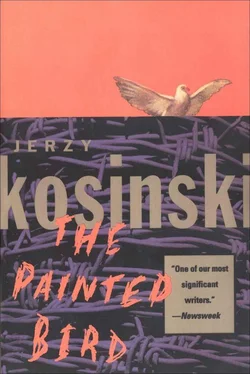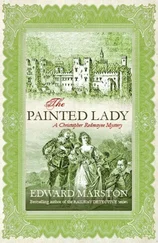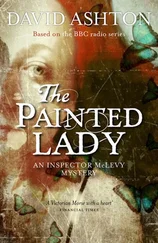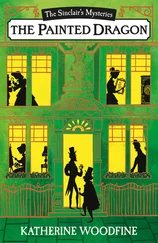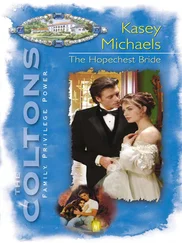Jerzy Kosiński - The Painted Bird
Здесь есть возможность читать онлайн «Jerzy Kosiński - The Painted Bird» весь текст электронной книги совершенно бесплатно (целиком полную версию без сокращений). В некоторых случаях можно слушать аудио, скачать через торрент в формате fb2 и присутствует краткое содержание. Год выпуска: 1965, ISBN: 1965, Жанр: Детская проза, на английском языке. Описание произведения, (предисловие) а так же отзывы посетителей доступны на портале библиотеки ЛибКат.
- Название:The Painted Bird
- Автор:
- Жанр:
- Год:1965
- ISBN:978-0-8021-9575-3
- Рейтинг книги:4 / 5. Голосов: 1
-
Избранное:Добавить в избранное
- Отзывы:
-
Ваша оценка:
- 80
- 1
- 2
- 3
- 4
- 5
The Painted Bird: краткое содержание, описание и аннотация
Предлагаем к чтению аннотацию, описание, краткое содержание или предисловие (зависит от того, что написал сам автор книги «The Painted Bird»). Если вы не нашли необходимую информацию о книге — напишите в комментариях, мы постараемся отыскать её.
The Painted Bird — читать онлайн бесплатно полную книгу (весь текст) целиком
Ниже представлен текст книги, разбитый по страницам. Система сохранения места последней прочитанной страницы, позволяет с удобством читать онлайн бесплатно книгу «The Painted Bird», без необходимости каждый раз заново искать на чём Вы остановились. Поставьте закладку, и сможете в любой момент перейти на страницу, на которой закончили чтение.
Интервал:
Закладка:
Mitka’s rifle was the object of constant admiration. Yielding to requests, he would take it out of its sheath, blowing off invisible specks of dust on the sights and stock. Trembling with curiosity, young soldiers bent over the rifle with the reverence of a priest at an altar. Old soldiers with large, horny hands picked up the weapon with its softly polished stock as a mother picks up a baby from its cradle. Holding their breath they examined the crystal-clear lenses of the telescopic sight. It was through this eye that Mitka saw the enemy. These lenses brought the targets so close to him that he could see the faces, gestures, smiles. It helped him to aim unerringly at the spot beneath the metal bars where the German heart was beating.
Mitka’s face darkened as the soldiers admired his rifle. He instinctively touched the pained, stiffened side of his body in which the fragments of a German bullet was still embedded. That bullet had ended his career as a sniper a year ago. It tormented him daily. It changed him from Mitka the Cuckoo, as he had been known before, into Mitka the Master, as he was now more often called.
He was still the regimental sharpshooting instructor, and he taught young soldiers his art, but that was not what his heart craved. At night I sometimes saw his wide-open eyes staring at the triangular roof of the tent. He was probably reliving those days and nights when, hidden in branches or in ruins far behind enemy lines, he had waited for the right moment to pick off an officer, a staff messenger, an airman, or a tank driver. How many times he must have looked the enemy in the face, followed their movements, measuring the distance, setting his sights once more. With each one of his well-aimed bullets he strengthened the Soviet Union by removing one of the enemy’s officers.
Special German squads with trained dogs had searched for his hiding places, and the manhunts had covered wide circles. How many times he must have thought he would never return! Yet I knew that these must have been the happiest days of Mitka’s life. Mitka would not trade these days when he was both judge and executioner for any others. Alone, guided by the telescopic sights of his rifle, he deprived the enemy of their choicest men. He recognized them by their decorations, by the insignia of their rank, by the color of their uniforms. Before pulling the trigger he must have asked himself if this man was worthy of death by a bullet from Mitka the Cuckoo’s rifle. Perhaps he should wait for a choicer victim: a captain instead of a lieutenant, a major instead of a captain, a pilot instead of a tank gunner, a staff officer instead of a battalion commander. Every one of his shots could bring death not only to the enemy, but also to himself, thus robbing the Red Army of one of its finest soldiers.
Thinking about it all, I admired Mitka more and more. Here, lying on a bed a few feet from me, was a man who worked for a better and safer world, not by praying at church altars, but by excelling in his aim. The German officer in the magnificent black uniform, who spent his time killing helpless prisoners or deciding the fate of small black fleas like me, now appeared pitifully insignificant in comparison with Mitka.
When the soldiers who had slipped out of the camp to the village did not return, Mitka became worried. The hour of the night inspection was approaching and their absence might be discovered at any moment. We were sitting in the tent. Mitka paced nervously, rubbing his hands, moist with emotion. They were his closest friends: Grisha, a good singer, whom Mitka accompanied on his accordion; Lonka, who came from the same city; Anton, a poet, who could recite better than anyone else; and Vanka who, Mitka claimed, had once saved his life.
The sun had set and the guard had been changed. Mitka kept looking at the phosphorescent dial of his watch, which he had won as war loot.
There was a commotion among the guards outside. Someone shouted for a doctor as a motorcycle sputtered at top speed across the camp toward headquarters.
Mitka rushed out, pulling me along with him. Others also came running behind.
Many soldiers were already assembled at the guard line. Several soldiers covered with blood knelt or stood surrounding four motionless bodies laid on the ground. We learned from their incoherent words that they had attended a feast at a nearby village and had been attacked by some drunken peasants who had become jealous of their women. The peasants had outnumbered and disarmed them. Four of the soldiers had been killed with axes and others badly wounded.
The deputy commander of the regiment arrived, followed by other senior officers. The soldiers made way for them, and stood at attention. The wounded men tried in vain to rise. The deputy commander, pale but composed, listened to the report of one of the injured men and then issued his orders. The wounded were immediately taken to the hospital. Some of them could walk slowly, supporting one another and wiping blood from their faces and from their hair with their sleeves.
Mitka crouched at the feet of the dead men, staring silently at their butchered faces. Other soldiers stood by visibly upset.
Vanka lay on his back, his white face turned to the surrounding onlookers. In the dim light of a lantern one could see streaks of congealed blood on his chest. Lonka’s face had been split in two by a terrible blow from an ax. Splintered skull bones were mixed with hanging ribbons of neck muscles. The battered, bloated faces of the other two were barely recognizable.
An ambulance drove up. Mitka angrily clutched my arm while the bodies were taken away.
The tragedy was brought up in the evening report. The men swallowed hard, listening to new orders forbidding any contact with the hostile local population and prohibiting any action which could further aggravate its relations with the Red Army.
That night Mitka kept whispering and muttering to himself, beat his head with his fist, and then sat in brooding silence.
Several days passed. Regimental life was returning to normal. The men mentioned the names of the dead less frequently. They began to sing again and prepared for the visit of a field theater. But Mitka was not well, and someone else replaced him in his training duties.
One night Mitka woke me up before dawn. He told me to dress quickly and said no more. When I was ready I helped him to bind his feet and to pull on his boots. He groaned with pain but moved in haste. When he was dressed he made sure the other men were asleep and then pulled out his rifle from behind the bed. He took the weapon out of its brown case and slung it over his shoulder. He carefully replaced the empty case behind the bed, locking it to look as though the rifle was still inside. Then he uncovered the telescope and slipped it into his pocket together with a small tripod. He checked his cartridge belt and took a pair of field glasses off the hook and looped the strap around my neck.
We silently slipped out of the tent, past the field kitchen. When the men on guard had marched by, we ran quickly toward the bushes, crossed the adjoining field, and were soon outside the encampment.
The horizon was still swathed in nocturnal mist. The white streak of a country lane crept between the dim layers of fog which hung over the fields.
Mitka wiped the sweat off his neck, hitched his belt, and patted me on the head as we hurried toward the woods.
I did not know where we were going or why. But I guessed that Mitka was doing something on his own, something he was not supposed to do, something that might cost him his position in the Army and in public esteem.
And yet, realizing it all, I was filled with pride to be the person chosen to accompany him, and help a Hero of the Soviet Union in his mysterious mission.
We walked fast. Mitka was obviously tired as he limped and pulled up his rifle which kept slipping off his shoulder. Whenever he stumbled he muttered curses which he usually forbade other soldiers to use and, realizing I had heard them, ordered me to forget them at once. I nodded in agreement, though I would have given much to have my speech back so that I could repeat these magnificent Russian curses, which were as juicy as ripe plums.
Читать дальшеИнтервал:
Закладка:
Похожие книги на «The Painted Bird»
Представляем Вашему вниманию похожие книги на «The Painted Bird» списком для выбора. Мы отобрали схожую по названию и смыслу литературу в надежде предоставить читателям больше вариантов отыскать новые, интересные, ещё непрочитанные произведения.
Обсуждение, отзывы о книге «The Painted Bird» и просто собственные мнения читателей. Оставьте ваши комментарии, напишите, что Вы думаете о произведении, его смысле или главных героях. Укажите что конкретно понравилось, а что нет, и почему Вы так считаете.
